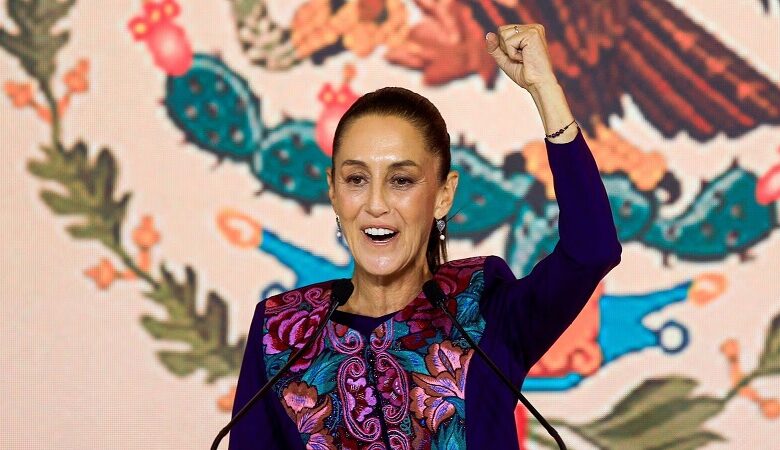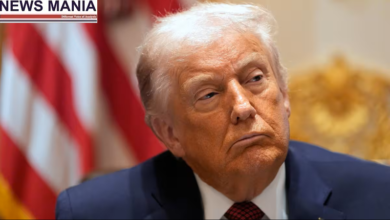Mexico Poised to Elect First Female President, Beating U.S. to Milestone

News Mania Desk/Agnibeena Ghosh/3rd June 2024
In a historic election set for Sunday, Mexico is expected to elect its first female president, potentially a woman of Jewish ancestry, ahead of its northern neighbor, the United States. Claudia Sheinbaum, a scientist, engineer, and former mayor of Mexico City, is the clear front-runner in a three-way race, poised to lead the country and navigate crucial issues such as cross-border trade, immigration, and drug trafficking.
Sheinbaum’s closest competitor is Xóchitl Gálvez, a businesswoman and former senator, who is trailing in second place according to polls. The third candidate in the race is Jorge Álvarez Máynez. This landmark election underscores the increasing influence of women in global politics, particularly in a country as significant to U.S. interests as Mexico.
Shannon O’Neil, a senior fellow at the Council on Foreign Relations, emphasized the importance of this election, stating, “So many things that happen in Mexico don’t stay in Mexico; they influence the United States. Who the next president of Mexico is really matters.”
Political rhetoric in the U.S. often reduces Mexico to stereotypes, such as former President Donald Trump’s reference to “bad hombres” or the country as a destination for spring break revelers. However, Mexico’s impact on the U.S. economy and daily life is profound and multifaceted. From manufacturing car parts that sustain American jobs in Detroit, to exporting windmill blades for U.S. clean energy plants, and providing pacemakers that save American lives, Mexico’s contributions are vast. The ubiquitous avocado toast, a trendy dish in American cafes, often features avocados imported from Mexico.
Last year, Mexico became the United States’ largest trading partner, surpassing China. According to the U.S. Census Bureau, the two countries engage in nearly $800 billion in trade annually. However, the relationship is not without its challenges. Mexico serves as a transit route for hundreds of thousands of migrants heading to the U.S., leading to repeated humanitarian crises at the border. It is also a primary source of fentanyl, a potent drug responsible for the deaths of tens of thousands of Americans each year.
O’Neil highlighted the stakes involved in the election, noting that the nature of Mexico’s presidency can significantly impact U.S. relations. “If you have a president that is open to the United States and cooperating on the shared challenges and doubling down on the opportunities,” she said, “that is better for the United States. If you have a president who is more suspicious and doesn’t want to work with the United States, then it’s much harder.”
Claudia Sheinbaum, who has been leading in polls by double digits, is viewed as more of a left-leaning idealist compared to the pragmatic deal-maker President Andrés Manuel López Obrador. However, she has pledged to continue López Obrador’s agenda. At a campaign rally outside Mexico’s historic Palacio Nacional, Sheinbaum, 61, praised López Obrador as the “best president Mexico has ever had,” criticized “neoliberalism,” and vowed to persist in efforts to combat inequality.
As Mexico prepares for this pivotal election, the potential implications for U.S.-Mexico relations are significant. With Sheinbaum likely to become the next president, the dynamics of bilateral cooperation on critical issues will be closely watched. Her leadership could herald a new era in Mexico, with substantial consequences for both nations.






